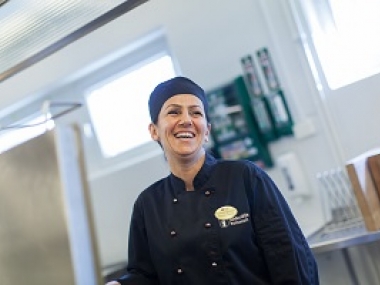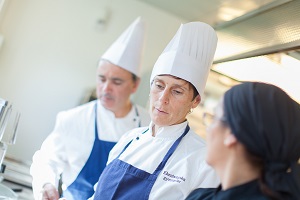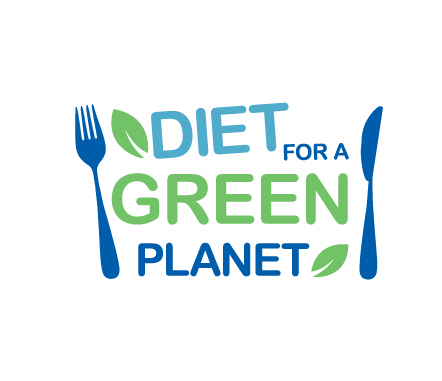Mutual learning at the core of Stakeholder Exchange Program
Edited on
02 April 2015An exchange between 47 professional key stakeholders in order to further deepen the concept understanding through peer-to-peer theoretical exchange and practical implementation.

The stakeholder exchange program including kitchen staff, food experts and civil servants from all partner cities has been an important part of this project. An important aspect of the exchange was getting the opportunity to work and practice your skills in kitchen canteens in another city. Other features of the exchange were going on study visits, and peer-to-peer exchanging of ideas and experiences. The exchange program, which has been mainly practically oriented, aimed at increasing the competence of the practical implementers of the Diet for a Green Planet concept. Södertälje’s good practice shows that there must be concept knowledge on high political level, but also in the kitchens where the food is prepared, if the implementation will succeed.
This exchange program has further strengthened our conviction that the grass root level is as important as the decision making level when it comes to promoting – and actually implementing – change.
The exchange program consisted of 5 occasions, and all in all 47 people have been part of it in one way or another; 12 from Molétai, 3 from Lomza, 19 from Mollet del Vallès and 13 from Södertälje. 10 people participated in 2 or more occasions, 37 participated in one occasion.

One of the aims of this bilateral stakeholder exchange was to achieve – at some level – personal development. Not only has the Diet for a Green Planet concept been transferred via formal meetings and presentations by and for politicians and civil servants. It is also a concept that speaks to each person individually. We wanted to examine if some personal development could be accomplished in this short time. In short the answer is yes. In the testimonials from the participants we clearly see that many of the participants have been enriched by this experience – either on a personal level, or on a professional one.
However, the exchange program was somewhat handicapped by 1) the difficult start of the whole project with tight deadlines and lack of time for the project representatives to elaborate on the details of the exchange program, and 2) the difficulty to explain the idea to the partners from the beginning.
A real exchange needs both more preparation work and more time than we had. Afterwards we have learned that the exchange was appreciated to the extent that partners wish to continue with a new project. An ERASMUS+ application that is a continuation of this exchange experience has been submitted with Lomza as one partner, a Lead Partner in Lithuania and other partners in Sweden and Hungary. Another lesson learned is that the roles of the participants – from the giving city or from the receiving cities – could have been better defined and the purpose of each visit could have been clearer. Points that have been considered in the ERASMUS+ project application.
On the other hand, the exchange did manage to touch peoples’ lives, and it did contribute positively to the project as a whole. A few examples of this we found in the written evaluations that were made. Some appreciated the concept’s focus on vegetables and environmental protection, others valued the fact that they got the opportunity to meet with peers from other countries. Still others found new ways of improving their daily work, e.g. by seemingly simple things like starting to measure the food waste and display the results so that everyone can see it.
Read the full report here (pdf):
Below you can see testimonials from two of the participants in the exchange program, during their visit to Södertälje in May, 2014:
Przemysław Ciuchnicki, Chef and teacher of food's technology in Lomza
Vicenç Ridorsa Arañó, member of the Ecological School Canteen Association in Catalonia
 Submitted by ddworetsky on
Submitted by ddworetsky on
